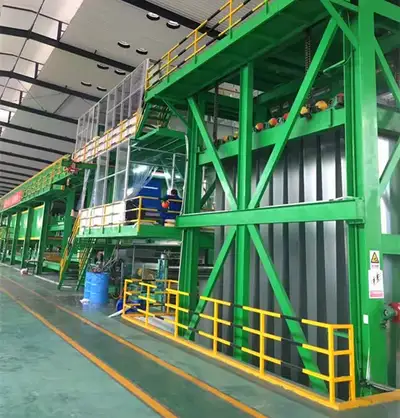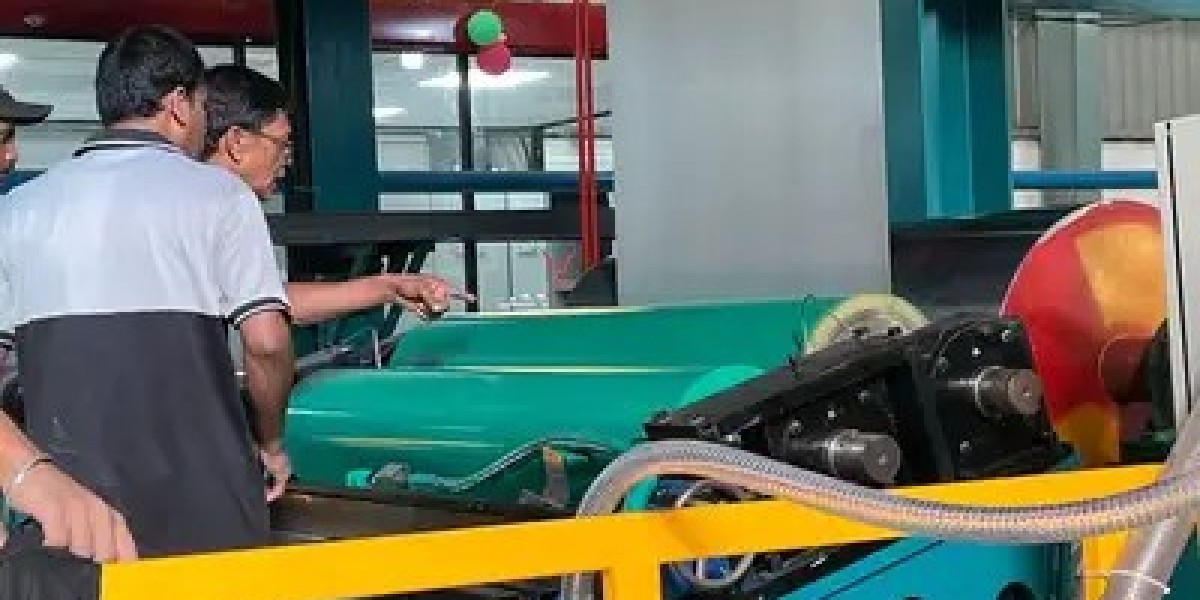In the precision-driven world of industrial equipment manufacturing, quality control transcends mere compliance to become the fundamental differentiator between adequate and exceptional performance. HiTo Engineering has established a renowned reputation for manufacturing cold rolling mills that set industry benchmarks for precision, reliability, and longevity. This excellence stems not from chance but from implementing meticulously designed quality control systems that permeate every aspect of their manufacturing process. Their holistic approach to quality management integrates advanced technology with rigorous protocols and a deeply ingrained culture of excellence, ensuring that every mill leaving their facility meets the most exacting standards demanded by today's competitive metal processing industries.
Integrated Quality Management from Design Inception
HiTo Engineering's quality control process begins at the earliest conceptual stage, long before any physical manufacturing occurs. Their design phase incorporates Failure Mode and Effects Analysis (FMEA) to systematically identify potential quality issues and engineer solutions directly into the mill designs. Using sophisticated simulation software, engineers virtually test components under extreme operating conditions, identifying stress points and potential failure modes before committing to physical prototypes. This proactive approach to quality ensures that potential issues are addressed in the design phase rather than during manufacturing or, worse, after installation at client facilities. By building quality into the fundamental design, HiTo establishes a strong foundation for the entire manufacturing process, significantly reducing the need for corrective measures later in production.
Advanced Material Verification and Traceability
The quality of any industrial equipment fundamentally depends on the materials used in its construction. HiTo Engineering has implemented rigorous material verification protocols that begin with comprehensive supplier qualification and extend through incoming inspection, manufacturing, and final assembly. All incoming materials undergo spectroscopic analysis to verify chemical composition and mechanical testing to confirm properties meet specification requirements. Each component is assigned a unique identification that allows full traceability throughout the manufacturing process and beyond. This meticulous tracking system ensures that any material-related issues can be quickly identified and addressed, while also providing clients with complete documentation for their quality assurance records and regulatory compliance needs.
Precision Machining and In-Process Validation
During the machining phase, HiTo employs a multi-layered quality control system that combines advanced measurement technology with rigorous process controls. Coordinate measuring machines (CMMs) regularly verify critical dimensions on components like rolls, housings, and drive elements, ensuring tolerances are maintained within microns. In-process inspections occur at defined checkpoints throughout machining operations, allowing for immediate correction of any deviations before additional value is added to components. Statistical process control methods track machining performance over time, identifying trends that might indicate developing issues with tools or equipment. This comprehensive approach to machining quality ensures that all components fit together perfectly during assembly, eliminating the need for corrective machining and ensuring optimal performance of the finished mill.
Sophisticated Metrology and Alignment Verification
The precise alignment of components represents one of the most critical factors in cold rolling mill manufacturers performance, directly affecting product quality, operational efficiency, and equipment longevity. HiTo Engineering utilizes laser alignment systems that are accurate to within thousandths of a millimeter to ensure perfect alignment of rolls, drives, and guides. These verifications occur at multiple stages during assembly, beginning with foundation preparation and continuing through final alignment checks of the completely assembled mill. Advanced vibration analysis equipment detects even minor imbalances in rotating components before they can affect operation. This meticulous attention to alignment ensures that HiTo's mills operate smoothly with minimal vibration, reducing wear on components and ensuring consistent product quality throughout their operational life.

Comprehensive Functional Testing Under Load
Before any mill is approved for shipment, it undergoes exhaustive functional testing that simulates actual operating conditions. HiTo's testing protocols include running the mill at various speeds and loads while monitoring hundreds of parameters including vibration, temperature, power consumption, and control system response. For critical systems like hydraulic and lubrication systems, they perform particle counting and contamination analysis to ensure cleanliness levels meet stringent standards. Control systems undergo validation to confirm that all safety interlocks function properly and that automation sequences perform as specified. These rigorous tests verify not only that the mill operates correctly but that it will perform reliably under the demanding conditions of continuous industrial production.
Documentation and Knowledge Management Systems
HiTo's quality control systems extend beyond physical verification to encompass comprehensive documentation that provides clients with complete visibility into the quality history of their equipment. Their electronic quality records include material certifications, inspection reports, alignment verification data, and test results, all accessible through a secure client portal. This thorough documentation serves multiple purposes: it provides clients with assurance of quality, facilitates maintenance and troubleshooting throughout the equipment's lifecycle, and creates a valuable knowledge base that HiTo uses to continuously improve their processes. The systematic capture and analysis of quality data enables HiTo to identify trends, implement preventive measures, and steadily enhance their manufacturing quality over time.
Continuous Improvement Through Quality Data Analysis
Perhaps the most distinctive aspect of HiTo's quality control system is its closed-loop nature, where quality data systematically feeds back into process improvements. Their quality management team regularly analyzes inspection results, test data, and performance metrics to identify opportunities for enhancement in design, manufacturing, and supplier quality. This data-driven approach to continuous improvement has enabled HiTo to steadily reduce variation in their processes while simultaneously enhancing product performance and reliability. By treating quality not as a destination but as an ongoing journey of refinement, HiTo ensures that their cold rolling mills not only meet current industry standards but consistently push the boundaries of what's possible in precision metal forming equipment.









